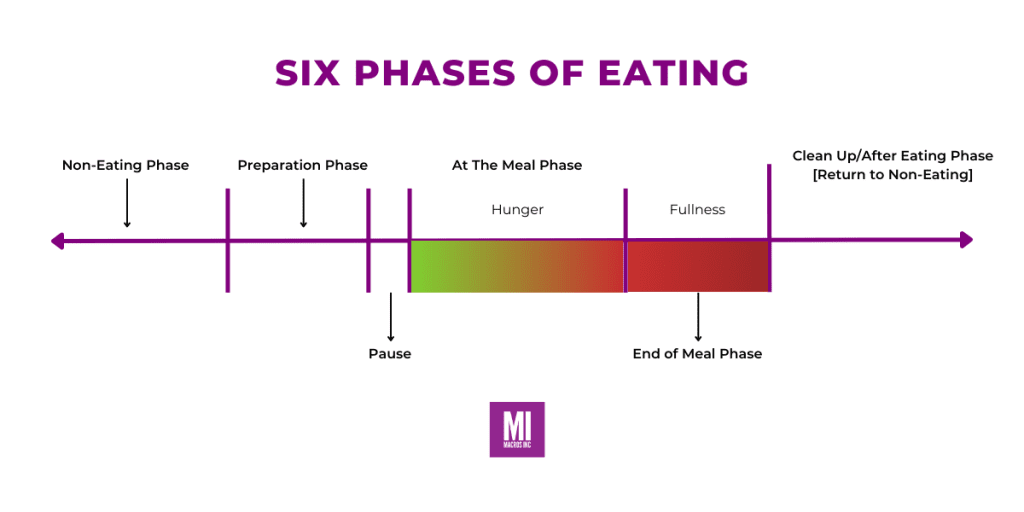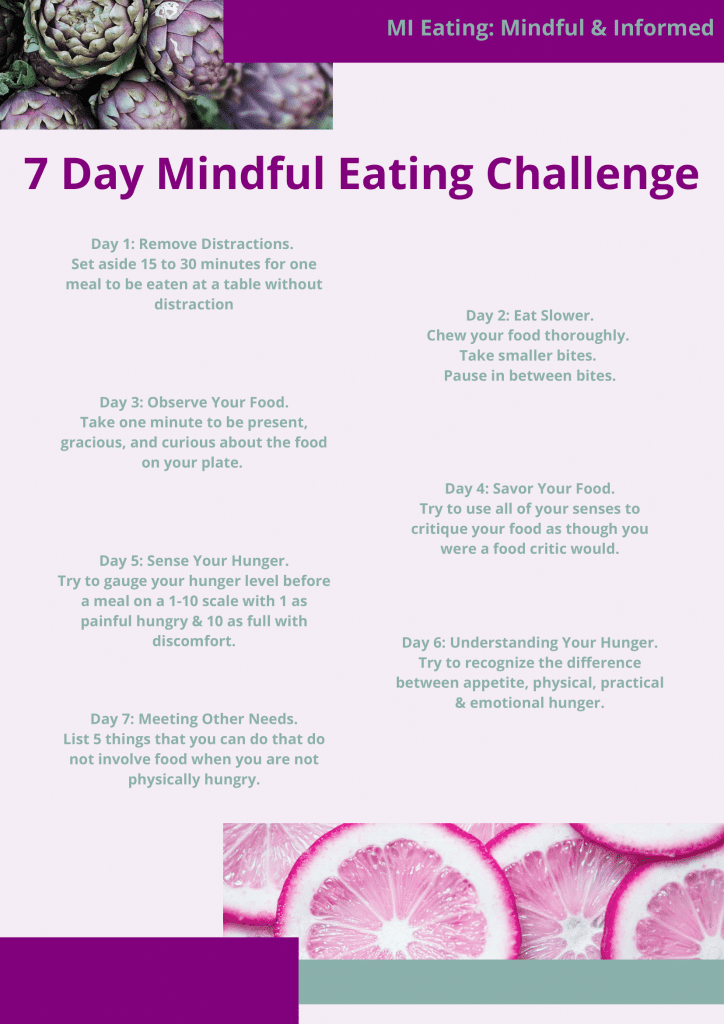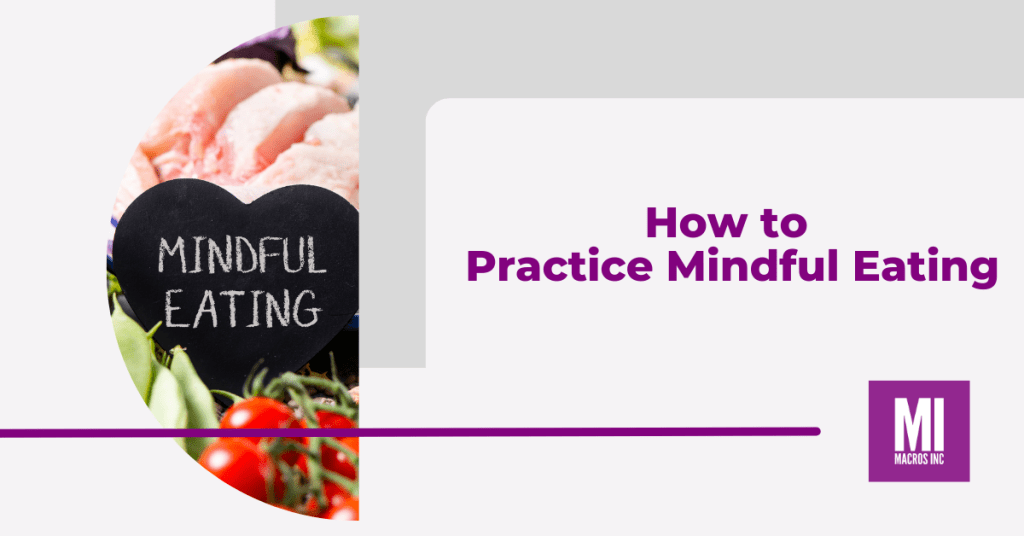Mindful eating is a practice of eating while focusing on how and what you eat and working towards a healthy relationship with food. This approach helps you develop a sustainable way of eating that supports your overall well-being.
It involves the art of slowing down, recognizing triggers that make you eat when you’re not hungry, finding other ways to meet your needs besides eating, choosing foods that are both enjoyable and nourishing, and being aware of your body’s cues for hunger and fullness.
Jump to a Topic
What Does Mindful Eating Involve?
Slowing Down
Mindful eating helps you slow down and pay attention to your eating habits. You become more conscious of your thoughts and feelings about food – before, during, and after meals. When you practice mindful eating, you learn to fully enjoy your food by using all your senses and better understanding your current needs.
Choosing Foods that Bring You Value
Mindful eating doesn’t tell you which foods you can or cannot eat because it’s more about appreciating the value that food brings and having positive thoughts and emotions when it comes to eating. You listen to your body and choose foods that satisfy and nourish you. It’s important not to judge your preferences and choose foods that are worth it to you for your current wants and needs, your nutritional goals, and your future needs.
Using Hunger Cues to Guide You
By paying closer attention to what your body is telling you, you gain a better understanding of your preferences and needs; when you’re hungry and stop when you’re full. Mindful eating is not just about eating slowly without distractions. It’s a way of eating that considers all aspects of the eating experience within the six phases of eating.
The Six Phases of Eating with Mindfulness

- During the non-eating phase, when you’re not physically hungry, you focus on other activities instead of eating.
- In the preparation phase, if you do feel hungry, you usually want a smaller snack or meal. You choose your food mindfully, thinking about what will nourish and satisfy you.
- The pause phase is a moment before eating where you take a moment to be present and engage in mindful eating practices.
- During the eating phase, you pay attention to your level of hunger and fully experience the taste and texture of your food.
- As you approach the end of the meal phase, you become aware of feeling full and understand that eating more might make you uncomfortable.
Mindful or Mindless Eating Habits
How do you know if you may benefit from a mindful eating practice?
Do you…?
- find yourself eating quickly and unable to savor your food?
- have difficulty recognizing your hunger or fullness cues?
- consistently find yourself eating out of either habit or boredom?
- experience guilt or shame from food choices?
- tend to lack satisfaction from meals?
- have difficulty enjoying your food?
- use food instead of addressing emotional needs outside of food?
If you identify with these actions or feelings, you could benefit from mindful eating. If you would like to get started, download our 7-day Mindful Eating Challenge PDF to introduce yourself to the concept.
7-Day Mindful Eating PDF

Conclusion
Practicing mindful eating affects how we relate to food and our overall well-being. It involves being fully present and aware while eating, using our senses to better understand what our body needs.
Mindful eating is a comprehensive approach that includes recognizing what triggers our eating habits, selecting foods, and finding other ways to deal with emotional needs instead of turning to food.
By breaking free from mindless habits, we can develop a greater appreciation for our meals and experience greater satisfaction. Starting a mindful eating practice can establish healthier eating patterns and transform our relationship with food, leading to a more balanced and fulfilling lifestyle.
References
Albers, S. (2003). Eating Mindfully: How to End Mindless Eating & Enjoy a Balanced Relationship with Food.
Bays, J. C. (2009). Mindful Eating: A Guide to Rediscovering a Healthy and Joyful Relationship with Food. Shambhala Publications.
Fletcher, M. (2017). The Core Concepts of Mindful Eating: Professional Edition: Professional Edition. Lulu.com.
Hanh, T. N., & Cheung, L. (2011). Savor: Mindful Eating, Mindful Life. HarperOne.
May, M. (2005). Am I Hungry: What to Do When Diets Don’t Work.
May, M. (2011). Eat what You Love, Love What You Eat: A Mindful Eating Program to Break Your Eat-repent-repeat Cycle.
Try our nutrition coaching, for free!
Be the next success story. Over 30,000 have trusted Macros Inc to transform their health.
Simply fill out the form below to start your 14-day risk-free journey. Let's achieve your goals together!

